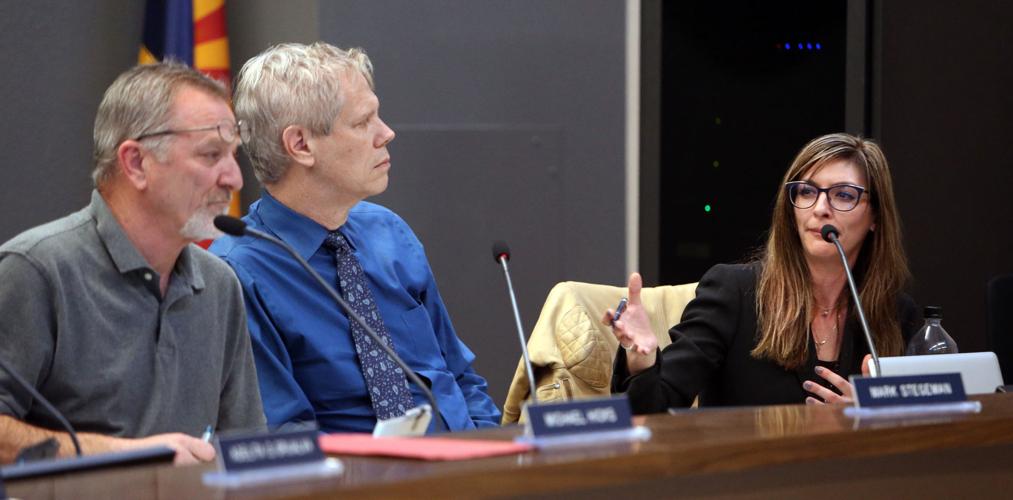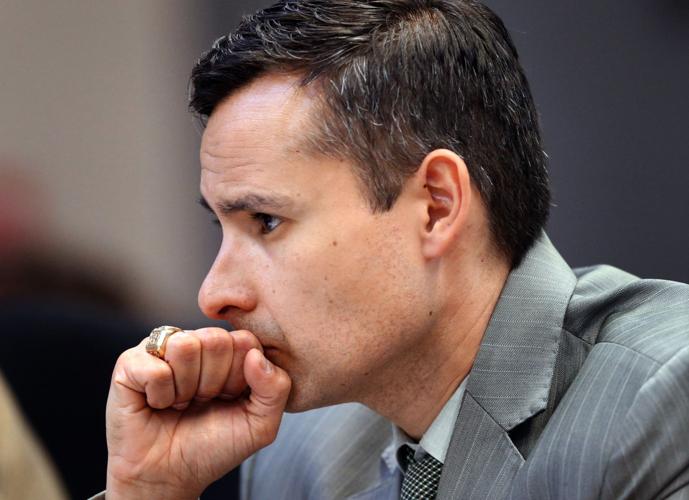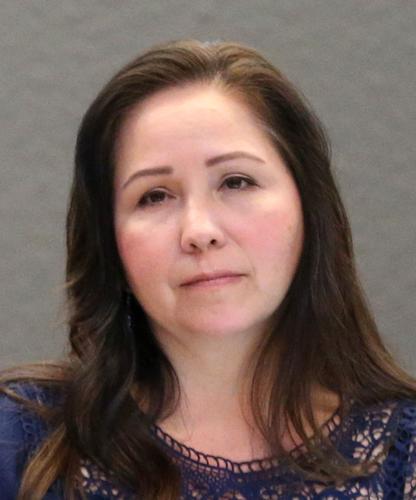It all started with a single, last-minute agenda item — at least in the public’s eyes.
The Tucson Unified School District Governing Board has contemplated — for at least two weeks now — the future of its chief administrator, H.T. Sanchez, who was hired in 2013 to lead the area’s largest school district.
Much of the discussion has been happening behind closed doors — in executive sessions and private meetings between several board members and a lawyer who was previously dismissed by the superintendent.
That attorney, Bill Brammer, has now been retained by the five-member board to provide counsel as Governing Board members deal with issues surrounding the superintendent’s job.
Public discussions on the matter were tabled twice — once at the Feb. 14 board meeting and another time the following week. More than a 100 people, including teachers, parents and district residents, showed up at both meetings to speak about the issue.
Board President Michael Hicks said last week the matter of the superintendent’s employment will be discussed by the board again Tuesday, Feb. 28. The issue is to be discussed again in executive session. (See box above.)
But for now, the board remains publicly divided, with two members seeking an apparent change in district leadership, two supporting Sanchez, and one, Hicks, who won’t say much more than he will do what makes sense, though he has often aligned with board clerk Mark Stegeman on issues.
Sanchez was hired in 2013 and his contract is up for renewal in 2018. He is paid a base salary of $270,000 to oversee about 52,000 students in schools across the city.
Issues brought by new board member
When new board member Rachael Sedgwick first requested to review Sanchez’s employment at the Feb. 14 meeting, she said in an interview that she wanted to see about creating a performance plan for the superintendent.
“It’s always been my intention to bring it to the superintendent’s attention that things can be improved,” she said.
She had been critical of the superintendent ever since she started campaigning for election to the school board.
Upon taking office Jan. 1, she launched an effort to get Sanchez certified as a teacher in Arizona and later requested the district create an anonymous community survey that would include, among other things, a question about “perceived administrator efficacy and support,” according to an email she wrote to a board assistant Feb. 12.
Sedgwick said what she calls a “middle of the road” discussion about the superintendent’s job performance has evolved into something else. “Things have definitely developed,” she said.
“My presence on the board has completely changed the dynamic,” she said.
“We’re getting to know each other. We’re discussing a personnel item, and that makes things tense.”
Stegeman has been questioning Sanchez’s leadership for much longer. He said in an interview that he first began having concerns about Sanchez in late 2013, when the state Attorney General’s Office began an investigation into a TUSD procurement contract.
The investigation did not result in charges or a judgment, but aroused some clear questions, Stegeman said. He has pointed out his concerns regarding Sanchez on multiple occasions. Those include high administrative spending, low student achievement, declining enrollment, student discipline issues and staff turnover.
“There are some serious performance issues,” he said last week.
In looking into those issues, Stegeman sought the help of attorney Brammer, who formerly represented TUSD in the decades-long desegregation court case on a contract basis, but was not affiliated with the district at that time. Brammer was eventually dismissed by Sanchez.
Brammer helped Stegeman compile a list of Sanchez’s performance issues, Stegeman said. “I was aware of legal implications and of course I needed to go to a lawyer to understand legal implications.”
The attorney also met with Sedgwick and Hicks, according to an email obtained by the Star that was written by Todd Jaeger, the district’s current general counsel, who recommended the board seek outside counsel.
Those meetings happened before Brammer was officially appointed last Tuesday to advise the board on Sanchez’s employment. Jaeger expressed his discomfort at the possible conflict of interest involving Brammer in the email addressed to board members.
Stegeman said he didn’t think it was a conflict of interest. He chose Brammer because he is familiar with the district.
“Conflict of interest means that my goals were in conflict with the board’s goals,” Stegeman said. “I don’t personally think that’s true.”
A DIVIDED BOARD
Board President Hicks previously said he wouldn’t support a measure to terminate Sanchez that doesn’t come with plans for doing what’s best for the district. On Friday, he said it would all depend on whether whatever plan of action comes forward makes sense for the district.
Board members Adelita Grijalva and Kristel Foster both have shown support for Sanchez. They won’t support a board decision to fire him.
“I think that Dr. Sanchez does a good job. You can see that based on the people who are coming out to support him. He has cross-community support,” Grijalva said.
Should Sanchez get fired, a new superintendent search would cost about $60,000, said Stefanie Boe, a district spokeswoman. The attorneys advising the board through the process to review Sanchez’s employment are paid about $250 to $500 per hour.
Michael Varney, president of the Tucson Metro Chamber of Commerce, said he believes Sanchez has a great track record in boosting high school graduation, engaging with the private sector and minimizing enrollment declines. He has spoken out at different board meetings against terminating the superintendent.
“I support him for a lot of reasons, not the least of which is that he has been a tremendously effective superintendent,” Varney said.
The other issue is the lack of continuity and stability in the superintendent’s job.
TUSD has had seven superintendents in the past 20 years, and a divided board with “political angst” doesn’t create an optimal atmosphere for an executive, Varney said.
When asked about the perceived animosity among board members, Grijalva said, “I think we have to establish trust, and that trust has been broken for me, specifically with Dr. Stegeman.”
Hicks said his goal is to not allow the relationships among board members to get too damaged.
“I want to make sure that we all are working together for a common goal, which is the betterment of education for our students.”
Varney said he hopes for the same.
“The entire board needs to find a way to work together to create more effective policy. They have not found a way to work together, and I think that’s regrettable,” he said.







